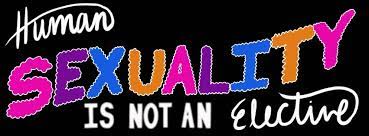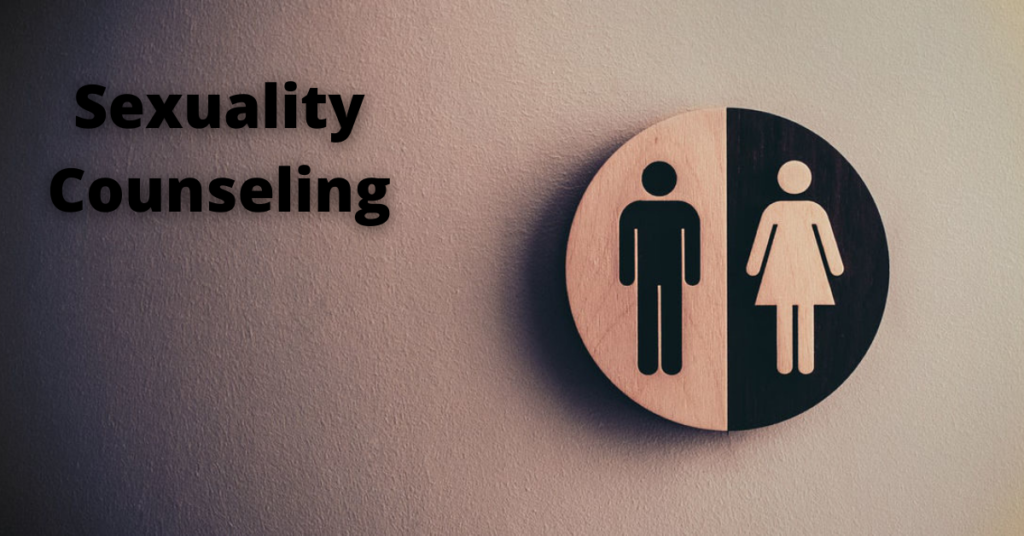Contents
Sexuality Counseling
 Sexuality counseling is a specialized area of counseling that can be practiced by a variety of professionals. These professionals may include marriage and family therapists, school counselors, psychologists, psychiatrists, or social workers. It is an important aspect of mental health care to provide support and assistance in decision-making for individuals struggling with sexual identity issues.
Sexuality counseling is a specialized area of counseling that can be practiced by a variety of professionals. These professionals may include marriage and family therapists, school counselors, psychologists, psychiatrists, or social workers. It is an important aspect of mental health care to provide support and assistance in decision-making for individuals struggling with sexual identity issues.
The purpose of sexuality counseling is similar to any other form of therapy. Individuals seeking help from a counselor are most often struggling with identity formation, depression, anxiety, or other mental health issues. In sexuality counseling, it is common for an individual to struggle with sexual orientation and/or gender identity-related conflicts. Sexuality counseling can also be used as a preventative measure by instilling healthy sexual choices and behaviors in individuals before they reach adulthood.
What Does Sexuality Counseling Help With?

Sexual difficulty can be subjective and difficult to talk about, and for this reason, a professional sex therapist should be specifically consulted if:
- You have experienced sexual difficulties in the past and wish to resolve them
- If you are experiencing difficulties that currently limit your life or cause you significant distress
- You are looking for specific information about sexuality or desire. Often there are questions about physical aspects of intercourse/sex, but sometimes individuals simply want more information on what is “normal.”
An individual who is seeking sexuality counseling may be struggling with issues such as:
Sexual Desire
Concerns about sexual desire are common among individuals coming for sexuality counseling. Often, it is the individual who lacks feelings of sexual attraction that seeks out therapy. Other times, an individual may feel that they have experienced a drastic change in their ability to be sexually attracted to others after suffering from a sexual assault or similar trauma.
Arousal Difficulties
An individual struggling with arousal difficulties may feel that they are not sexually aroused, or only able to be sexually aroused in a single sexual orientation. It is common for individuals who have been victims of sexual assault to feel this way, as their arousal becomes associated with trauma. Individuals who do not experience any form of arousal might also seek out sexuality counseling, either due to other health concerns or simply because they want to enjoy a sex life despite their lack of arousal.
Relationship Issues
Issues with sexuality within relationships can stem from direct issues within the relationship. This can be in the form of communication problems, feelings of neglect, or even abuse. Or it could be that there is a lack of intimacy within the relationship; generally, in close relationships (i.e. not necessarily sexual ones) you can often find that individuals feel like they are struggling to meet each other’s expectations and therefore end up feeling distant from one another which can lead to issues with sexuality e.g. unwillingness to make love because you don’t feel emotionally connected; doing so would feel like ‘cheating’ on someone else (when in reality this isn’t the case).
Sexuality Counseling Approaches

Sexuality counseling may help individuals or couples with physical sexual problems, mental disorders, relationship issues, gender identity disorder.
There are 3 different types of sexuality counseling approaches :
Sexuality Education Approach: provides the client with knowledge about their body parts associated with sexuality including technics to improve relationships
Behavioral Approach: helps eliminate certain negative behaviors through techniques such as systematic desensitization or masturbatory reconditioning
Cognitive-Behavioral Approach: focuses on irrational thoughts that influence behavior and then provide positive cognitions in place of these to achieve behavioral changes.
Goal of Sexuality Counseling

The goal of sexuality counseling is either to resolve or to improve a sexual problem. It may be part of the treatment for an individual who is experiencing depression, anxiety, poor self-esteem, relationship difficulties.
It can also help those individuals who would like to explore their sexuality and make sense of their sexual identity as well as encourage others who don’t want to pursue relationships or intercourse because they are no longer interested in it.
Sexuality counseling provides people with information on safe sex practices and contraception choices to avoid sexually transmitted infections (STI). It may also provide bereavement counseling to those involved in a romantic relationship that has recently ended or that was previously unresolved. In some cases, the professional might refer the client to a specialist such as a social worker if there seem to be problems between the client and their partner.
Sexuality counseling involves the awareness of one’s own values, thoughts, feelings, beliefs, attitudes about sex and sexuality which are personal to each individual. It also includes awareness of interpersonal relationships in general while considering sexual issues.
Some Issues Addressed via Sexuality Counseling
These are some of the issues that sexuality counseling tries to address with individuals or couples when these are causing problems in their sexual lives. Some of these are:
Sexual Desire: this has been defined as a state when people experience sexual pleasure, with or without orgasm.
Inhibited Sexual Desire: this is a difficulty in feeling passion for making love and thus in engaging in sex. It affects both men and women. In men, they may have problems reaching orgasm or ejaculating while women may lack vaginal lubrication which is necessary for pleasurable intercourse.
Male Erectile Disorder: erectile dysfunction (ED) results from physical or psychological issues that cause impotence or erectile dysfunction (ED). This disorder can include the inability to get an erection during sexual activity even though the individual has a desire to do so.
Benefits of Sexuality Counseling

There are some benefits of sexuality counseling.
Helps To Resolve Problems
One of the most important benefits of sexuality counseling is that it helps to resolve problems. This is one reason why professionals are used, because they may be able to provide more insight into how to go about resolving these issues. They can offer advice on what the person should do in order to better help them deal with their problem and can sometimes point out solutions they may not have thought about before.
Increases Confidence
Sexuality counseling also helps people gain more confidence. It may be difficult for some people who feel they are unable to form relationships or follow through sexually, but this type of counseling gives them the chance to discuss their issues with someone who understands and does not judge them. There are no judgments passed when they get a good relationship and the person is able to get good feedback on how they can improve and what they should do in order to be successful.
Increases Self-Esteem
Another thing that may happen when a person goes through sexuality counseling is that their self-esteem may increase. They will feel better about themselves. It is because they are able to discuss their problems and at the end of it there is no judgment. They will also offer encouragement and advice on how people can overcome these things, giving them more confidence in themselves as well. The counselors try to make sure the individual leaves feeling positive about themselves and their abilities to deal with other areas in life outside of sex too.
Helps To Gain More Knowledge
This is true especially if both of the partners are new to the counseling. They may have some general knowledge about sex but experiencing it is an altogether different thing. Through sexuality counseling, they can learn more about each other’s needs and desires while still having fun exploring these things.
Helps To Enhance Your Sex Life
If you want to enhance your intimacy and your sexual relationship, then sexuality counseling is the type of therapy that can help. Intimacy involves many different elements including communication, touch, physical closeness and overall comfort with another person.
Helps You Resolve Issues
Sexuality counseling can be helpful in resolving problems or issues that may be getting in the way of intimacy or sexual relations. The specific issue could be conflict over who makes love more often; it could involve concerns about moving forward sexually after an affair; it could also deal with past trauma around sex; whatever the problem may be, counselors can help people resolve these types of difficulties.
Side-Effects of Sexuality Counseling

These are some side effects of sexuality counseling. Some of these are:
There are many different ways that sexuality counseling can go wrong. Counselors might promote sex-negative attitudes and behaviors that interfere with healthy sexual development. They might try to impose gender stereotypes onto their clients and frame non-traditional gender identities as mental illness. They might pathologize ordinary sexual variations, treating them as signs of psychological disturbance rather than diversity.
Counselors also have a propensity for imposing their own religious or political beliefs on clients: “Many therapists who conduct conversion therapy are Christian counselors who believe homosexuality is a sin and bisexuality doesn’t exist.”
There is an unfortunate lack of consensus regarding what does and does not constitute ethical sexuality counseling . I’ve identified three strands of tension that play out in different scenarios:
This tension can play out in different ways, depending on how much the counselor knows about specific aspects of sexuality. For instance, if a counselor has no knowledge whatsoever of sexual anatomy or sex-related illnesses, they might try to convince their clients that non-reproductive sexual activities are unhealthy– even though there is ample evidence that many forms of sex play are physically safe.
This tension arises when counselors hold specific beliefs about sexuality that conflict with the ethical codes governing sexuality counseling . Some psychologists promote erroneous ideas like autogynephilia and arousal nonconcordance , while others refuse to acknowledge identities like transsexuality and bisexuality . This tension also surfaces when counselors make assumptions about their clients’ identities or preferences without first them for input.
Conclusion
In conclusion, sexuality counseling is something that has proven to be effective in treating many problems. This is especially those having to do with relationships, but there are some side effects. It may not cause all of these effects but it can cause at least one or two for certain people. If you want to take sexuality counseling then it would be best to speak with a doctor about your options.
For more information, please contact MantraCare. Relationships are an essential part of human life. It is the connection between people, and it helps us to form social bonds, understand and empathize with others. If you have any queries regarding Online Relationship Counseling experienced therapists at MantraCare can help: Book a trial therapy session


